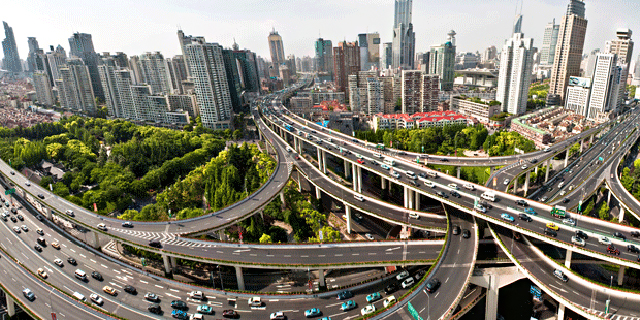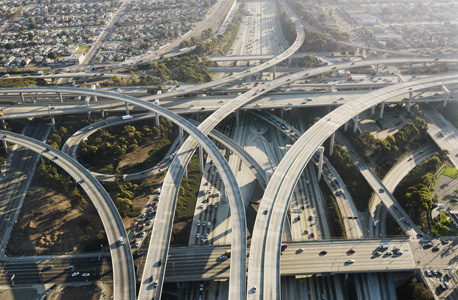
Opinion
The Transportation Transformation
The future of mobility invites optimism, but as transportation is changing, we should remember it is on us to chart the course
Max Marine | 11:01, 06.07.18
Imagine a reality in which getting to work is as easy as walking out your front door and one could travel from Los Angeles to San Francisco in 30 minutes. Imagine that cars could communicate with humans like humans communicate with customer service agents, or that the fastest way to get from point A to point B was by hopping on an untethered electric scooter that you simply pluck from the sidewalk.
For daily updates, subscribe to our newsletter by clicking here.
The future of transportation invites optimism. Today, we sit miserably in traffic jams, spend exorbitant amounts of money on owning and maintaining vehicles, lose alertness and empathy while driving, and pollute our planet with toxic chemicals. Tomorrow, we could be flying to work in small orbs while sipping tea. Transportation is transforming.
In the future, passengers riding in driverless cars and trucks could summon remotely controlled assistance from drivers sitting miles away through the platform developed by Tel Aviv-based company Phantom Auto. Motorcycle helmets with cameras developed by Ride Vision Ltd. will predict collisions before they occur. Cars will alert local authorities if a child is left in the back seat alone, based on technology by car sensor startup Guardian Optical Technologies Ltd. Traffic lights will stay green when they sense an ambulance a few blocks away, using traffic optimization platform by NoTraffic Ltd. Transportation is a fundamental human need. Our livelihoods all depend on reliable methods that help us move. Cost, distance, availability, weather, delays, and wrong turns are some of the obstacles we face along the way. The best thing that can happen for humanity is that more of us get to travel to visit other countries. Yes, getting people and products to places faster is also something we want to improve, but with 50% of the world’s population living in cities, do we rely on the invisible hand, centralization, or both? Can you imagine one day paying for your Uber with your attention? All you have to do is watch ads the whole ride and permit algorithms to analyze your eyes and heart rate. What if you get to ride for free as long as you buy $30 worth of goods from Amazon during the ride? What if celebrities always ride for free provided they co-market mobility services to their constituents? If you can do all your shopping and work in mixed reality from the comfort of your own home, will you still need to consume as much mobility-as-a-service? The shift is not just about removing costly human error from the transportation system but applying new business models and technologies to make better use of what we’ve already got. The emerging driverless economy eliminates massive inefficiencies in our productivity. There are roughly 1.5 billion cars on our roads. If two-thirds of these cars are autonomically operated an average of 30 minutes a day, that is 30 billion minutes of attention suddenly available for other tasks. Sure some of us will blow it on scrolling and staring into devices, but imagine playing poker with your friend’s holographic representations, strumming the guitar, reading, writing, meditating, or even taking an online course. The question is who will monetize this attention? “God’s view,” as Uber puts it, is coming to a data center near you. The full picture. A complete, real-time understanding of each vehicle’s location, speed, and ETA. With Waze, CCTV, induction loops, and dashcams already working together to map reality. City and state officials will soon have the data and connectivity to see the world from above and on the ground simultaneously. They will need a much more sophisticated brain than the one floating in their skulls to handle the petabytes of numbers, letters, and images. This is a job for AI.Related stories
Max Marine is an investment at analyst at Tel Aviv-based venture firm lool ventures.

No Comments Add Comment